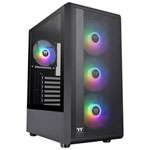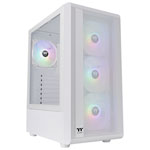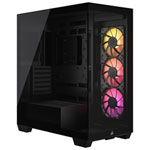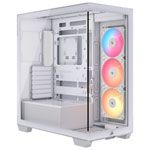Upgrade your PC performance without buying a new PC, by installing new PC components
Why would you need computer components?
Your computer or laptop looks like a single device, but it’s made up of dozens of components and PC parts. They all work together to provide the functionality you take for granted. Many of these can be replaced or upgraded, especially in the case of a desktop PC, and that’s a good thing. Occasionally, a PC part will fail. Sometimes a brand-new function will be available, so long as you install the new component. And many components can be upgraded, to keep your computer performing with the capabilities of a new PC. New computer parts mean keeping your PC running for longer, saving you the much larger expense of buying a new one.
When it comes to finding those computer parts, Canada has a huge resource in the selection at Best Buy.
What computer parts are key to improving performance and functionality?
There are a number of components that can improve your PC’s performance, enhance functionality—or both.
For both laptops and desktop computers, RAM is important for keeping your system humming, running memory-intensive applications, and keeping multiple apps and windows open simultaneously. Both benefit from storage, such as an SSD or HDD. A new SSD is one of the most popular computer parts Canada opts for, because the switch to solid state storage speeds up system operation considerable while also boosting storage capacity.
With a desktop PC, there are other critical components. A new processor will boost performance across the board. A new graphics card means greatly improved graphics and video processing—critical for video gaming, VR, editing 4K video, and other activities. Stuck with outdated and slow Wi-Fi? A new 802.11ac Wi-Fi card is the answer, and it’s easy to install.
There are other computer supplies to upgrade the capabilities of your PC, such as additional storage drives, an optical drive, or a sound card.
A new power supply may be called for to ensure your PC can accommodate the electrical requirements of upgraded components (especially video cards).
How do you know if your computer can benefit from a PC part?
Generally speaking, if your PC is holding you back, there’s a good chance it is a candidate for new computer parts.
A laptop will have limited upgradability (usually RAM and storage), but with a desktop computer virtually any component can be replaced or upgraded. If there are multiple problems in an aging machine, then you might be better off replacing the computer with a new one. But when there are specific issues—for example, lack of storage, a malfunctioning optical drive, slow Wi-Fi, slow performance with multiple windows open, lack of 4K support—the right PC part can make a big difference.
If you’re not certain about whether your PC would benefit from a new computer part, or you have questions about compatibility, check with the knowledgeable staff at Best Buy, or the expert agents at Geek Squad—the Canada computer parts experts.
Mastering the art of PC building
Building your own PC can be a rewarding and cost-effective way to get a machine tailored to your specific needs. Whether you're a gamer, a content creator, or just someone who needs a powerful computer for everyday tasks, building your own PC allows you to customize every aspect of your system, from the processor to the graphics card to the amount of RAM. In this guide, we will walk you through the essential steps to build your own PC.
Why build your own PC?
Customization is a key advantage of building your own PC. It allows you to choose every component of your system, ensuring that it is perfectly tailored to your needs and preferences. Additionally, building your own PC can often be more cost-effective than buying a pre-built one. You can choose components that fit your budget and needs, without paying for features you don't need. Moreover, by carefully selecting each component, you can build a PC that offers superior performance for your specific needs. Lastly, building your own PC can be a great learning experience. You will learn about the different components of a computer and how they work together.
Essential components of a PC
To build your own PC, you will need several essential components. The processor (CPU) is the brain of your computer and performs all the calculations needed to run your applications. The motherboard is the main circuit board that holds the CPU, memory, and other essential components. Memory (RAM) is the temporary storage used by the CPU to store data that is frequently accessed or needs to be accessed quickly. Storage includes hard drives (HDD) and solid-state drives (SSD), with SSDs being faster but more expensive than HDDs. The graphics card (GPU) is responsible for rendering images and videos. If you are a gamer or content creator, you will need a powerful GPU. The power supply unit (PSU) converts electrical energy from an outlet into a usable form for the computer. Lastly, the case holds all the components and provides cooling to prevent overheating.
Steps to build your own PC
First, plan your build by deciding on the purpose of your PC and choosing components that are suitable for your needs and budget. Next, gather your components by purchasing all the necessary parts. Then, prepare your workspace by ensuring you have a clean, well-lit, and static-free area. Carefully install each component into the case, then install the operating system of your choice. After that, install the necessary drivers and software for your components. Finally, test your build to make sure everything is working correctly.
Building your own PC can be a rewarding and cost-effective way to get a machine tailored to your specific needs. By carefully selecting each component and following the steps outlined in this guide, you can build a PC that offers superior performance for your specific needs.
Want more info on PC Components? Check out some of our resources on the Best Buy blog:
How to improve your PC gaming experience with an SSD or new hard drive








